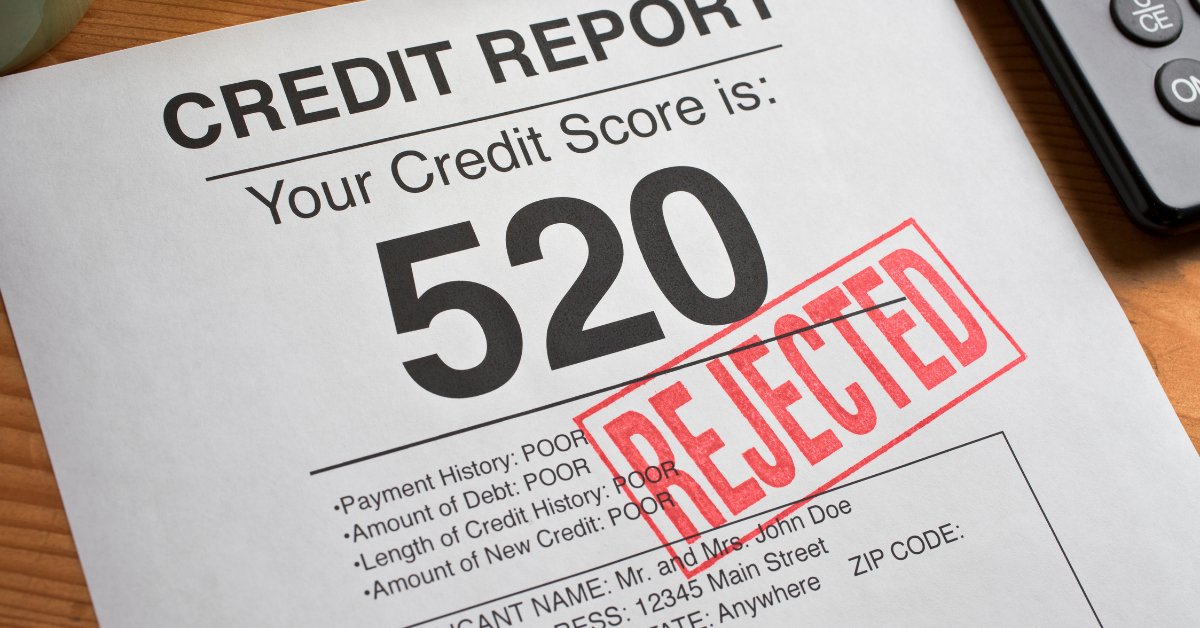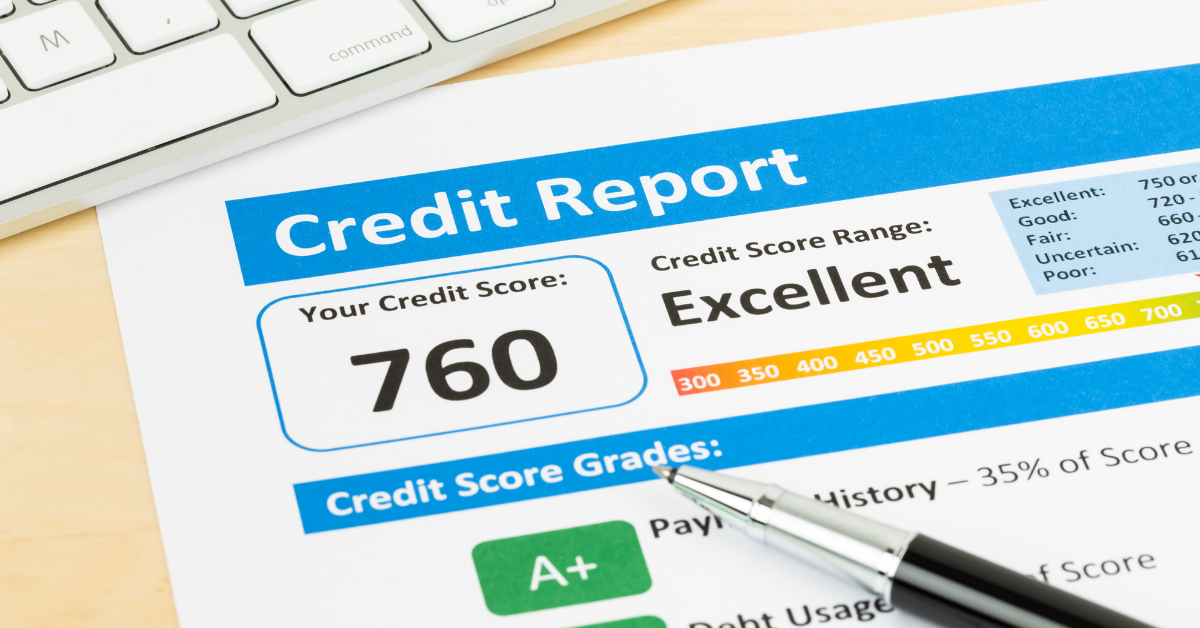How to Improve Your Credit Score
August 27, 2021
How to Improve Your Credit Score
August 27, 2021
Share this post:
Last updated: 02/28/2024

Your credit score has a significant impact on your ability to meet your financial and other life goals. A good credit score makes life a little easier and more affordable—you’re more likely to get approved for loans with lower interest rates, meaning lower payments and more money in your pocket. Obviously, having a high credit score is the ultimate goal, but what if you need to rebuild or improve your credit score?
12 Ways to Improve Your Credit Score
-
Start with where you are – review your credit report.
It’s important to know where you stand and what is currently impacting your credit score—both positively and negatively. Also, review for any errors and dispute them with the reporting agency.
Factors that affect your credit score include the length of your credit history, account types, credit usage, payment history, and recent inquiries/activity. You can read more about credit scores here.
-
Organize your bills to avoid late payments.
Avoiding late payments at all costs is the single most important thing you can do for your credit score. Late payments can stay on your credit report for 7+ years, and your payment history holds the highest weight (35%) on your FICO credit score, meaning on-time payments are incredibly important for improving your credit score. Create a tracking system for your bills, set alerts on your phone or calendar for upcoming due dates, and set up automatic payments on as many bills as possible to avoid late payments.
-
Work to pay down existing debt to utilize 30% or less of your credit.
Credit utilization, or the proportion of your total credit that you’re using at any given time, is the second most important factor that affects your FICO credit score. From a credit score improvement perspective, utilizing 10% or less of your total credit is ideal. One method to lower your credit utilization is to request a credit line increase—key to doing this is to avoid increasing your spending in conjunction.
-
Aim to pay the balance on your credit cards in full every month.
Approaching your credit cards with this mindset will help you manage both your credit utilization and interest accumulation. This may not always be realistic, especially if you have a large purchase you’re financing on your credit card or an emergency arises, but spending within your means and paying off your balance(s) every month can improve your credit score.
-
Make micropayments if you can.
If you struggle with money management or you can afford to make multiple payments, making smaller, more frequent payments helps both pay down your balances and moves money out of your bank account so that it can’t burn a hole in your pocket. This also helps bring down your credit utilization rate and might mean you sneak in a few extra payments per year.
-
Limit new credit requests and other “hard” inquiries on your credit report.
“Hard” inquiries can come from new credit card and loan applications, among other things. These can negatively affect your credit score as they indicate you are potentially overextending yourself or facing financial difficulties. Occasional hard inquiries likely won’t have much of an effect (as this is relatively normal for most people), but several in a short period of time can harm your credit score.
-
Keep your old accounts open.
Even if you have old accounts that you’re not using, keep them open. In general, it’s important to have at least one credit card, whether you use it or not. The age of your credit accounts is another factor in your credit score, and having cards open with a zero balance helps maintain your available credit at a higher level and lower your credit utilization ratio.
-
Address any delinquent accounts, charge-offs, or collections.
Catch up on any late or missed payments, then figure out how to make future payments on time. If you have charge-offs or any accounts in collections, evaluate if you can and should pay them off in full or try to offer the creditor a settlement.
The negative impact of accounts in collections isn’t strictly limited to credit cards and loans—this could be memberships, subscriptions, household fees (like utilities), even library late fees.
-
Decide if debt consolidation is right for you.
Banks and other lenders may offer debt consolidation loans to pay off all your credit cards (and possibly other debts) in one fell swoop. This can be advantageous to some because you only have to make one payment per month, and you may be able to obtain a lower interest rate than what you’re paying on your other credit accounts, meaning you can pay down your total debt faster.
-
Monitor your credit score as you work to improve it.
You can enlist the help of credit monitoring services to keep track of your credit score. Some credit card companies offer credit monitoring free of charge; you just may have a card in your wallet that makes you eligible for this service. Regular credit monitoring can also help prevent identity theft and fraud.
-
Get help if necessary.
If you’re overwhelmed by debt or simply don’t know where to start, debt management, credit counseling, or credit repair services may be necessary (but absolutely do your research because each comes with significant costs and possible negative impacts on your credit score in the meantime, plus you may able to do some, if not all, of the work on your own for no fee, of course). You can find reputable credit counselors here.
-
If you’re starting from zero, start building credit now.
According to Experian, approximately 62 million Americans have a “thin” credit file. Additionally, the Consumer Financial Protection Bureau reports that 26 million Americans have no record of credit at all. A thin credit file means you don’t have enough credit history to generate a credit score. Several options exist to help people in this situation. Experian Boost collects financial data not normally reported and factored into your credit score, like utility payments. This can factor into your FICO credit score to show you have a good history of paying bills that exclude credit cards and other loans. UltraFICO offers similar services, including your banking history on credit reports to help generate a credit score. Some services allow you to report your rent payments on your credit report, further helping you build credit by showing a good payment history.
You may need to open a secured credit card to start building a credit history, which requires a cash down payment that is held as collateral by the card issuer.
You can also explore the option of becoming an authorized user on someone else’s account. They don’t even have to provide you with a card for use; it could simply be a symbolic gesture that helps build your credit score. But beware of choosing the wrong person: If they miss payments or have high credit card balances, you’ll be on the hook, too. Make sure to choose a trusted person with good money habits if you utilize this option.

Improving your credit score is an important financial goal, especially if you have a big purchase on the horizon or if your credit score is preventing you from achieving other financial and life goals. Keep in mind that it can take time to noticeably improve your score, and it takes diligence to maintain it once you’ve reached your desired score. Building or rebuilding your credit can be challenging, especially if it means learning new money management habits. Understanding what is hurting and helping your credit score can help speed up your improvement plan. Start working now to improve your score; it may take time, but it will pay off—literally.
If you want to learn about more personalized and advanced strategies, schedule a 15-minute call with our team.
Schedule Your Complimentary 15-Minute Call
Want expert retirement and investing advice? Subscribe to our YouTube channel and check out our weekly podcast with The Sandman!
Listen to Protect Your Assets anywhere you get your podcasts:
Standard Disclosure
This blog expresses the author’s views as of the date indicated, are subject to change without notice, and may not be updated. The information contained within is believed to be from reliable sources. However, its accurateness, completeness, and the opinions based thereon by the author are not guaranteed – no responsibility is assumed for omissions or errors. This blog aims to expose you to ideas and financial vehicles that may help you work towards your financial goals. No promises or guarantees are made that you will accomplish such goals. Past performance is no guarantee of future results, and any expected returns or hypothetical projections may not reflect actual future performance or outcomes. All investments involve risk and may lose money. Nothing in this document should be construed as investment, tax, financial, accounting, or legal advice. Each prospective investor must evaluate and investigate any investments considered or any investment strategies or recommendations described herein (including the risks and merits thereof), seek professional advice for their particular circumstances, and inform themselves about the tax or other consequences of any investments or services considered. Investment advisory services are offered through Liberty Wealth Management, LLC (“LWM”), DBA Liberty Group, an SEC-registered investment adviser. For additional information on LWM or its investment professionals, please visit www.adviserinfo.sec.gov or contact us directly at 411 30th Street, 2nd Floor, Oakland, CA 94609, T: 510-658-1880, F: 510-658-1886, www.libertygroupllc.com. Registration with the U.S. Securities and Exchange Commission or any state securities authority does not imply a certain level of skill or training.
References
Black, Michelle. (2020, December 18). How to improve your credit score. Bankrate. https://www.bankrate.com/personal-finance/credit/how-to-improve-your-credit-score/
Brennan, Chelsea. (2021, April 1). How to Improve Your Credit Score. Forbes. https://www.forbes.com/advisor/credit-score/how-to-improve-credit-score/
Devaney, Tim. (2021, May 10). Can I raise my credit score fast? Credit Karma. https://www.creditkarma.com/advice/i/quick-tips-build-credit
Dulcio, Bents. (2021, July 29). How to Increase Your Credit Score. Debt.org. https://www.debt.org/credit/improving-your-score/
Experian. (n.d.). How to Improve Your Credit Score. https://www.experian.com/blogs/ask-experian/credit-education/improving-credit/improve-credit-score/
Experian. (n.d.). The State of Alternative Credit Data. https://www.experian.com/assets/consumer-information/white-papers/alternative-credit-data-paper.pdf
The Federal Reserve Board. (n.d.). 5 Tips for Improving Your Credit Score. https://www.federalreserve.gov/pubs/creditscore/creditscoretips_2.pdf
Gonzalez, Sarah, & Schneider, Claire Marie. (2020, November 10). Tricks to Improve Your Credit Score. NPR. https://www.npr.org/2020/11/09/933053299/tricks-to-improve-your-credit-score
Lake, Rebecca. (2021, May 4). How to Improve Your Credit Score. Investopedia. https://www.investopedia.com/how-to-improve-your-credit-score-4590097
MyFico. (n.d.). How to repair your credit and improve your FICO scores. https://www.myfico.com/credit-education/improve-your-credit-score
O’Shea, Bev. (2021, April 22). 8 Ways to Build Credit Fast. Nerdwallet. https://www.nerdwallet.com/article/finance/raise-credit-score-fast
Pennel, Julie. (2021, July 19). How to Improve Your Credit Score in 2021: Easy and effective tips. Today. https://www.today.com/tmrw/how-improve-your-credit-score-2021-easy-effective-tips-t225895
Vega, Nicolas. (2021, July 6). Follow these 3 steps to improve your credit score. CNBC. https://www.cnbc.com/2021/07/06/3-ways-to-improve-your-credit-score.html
